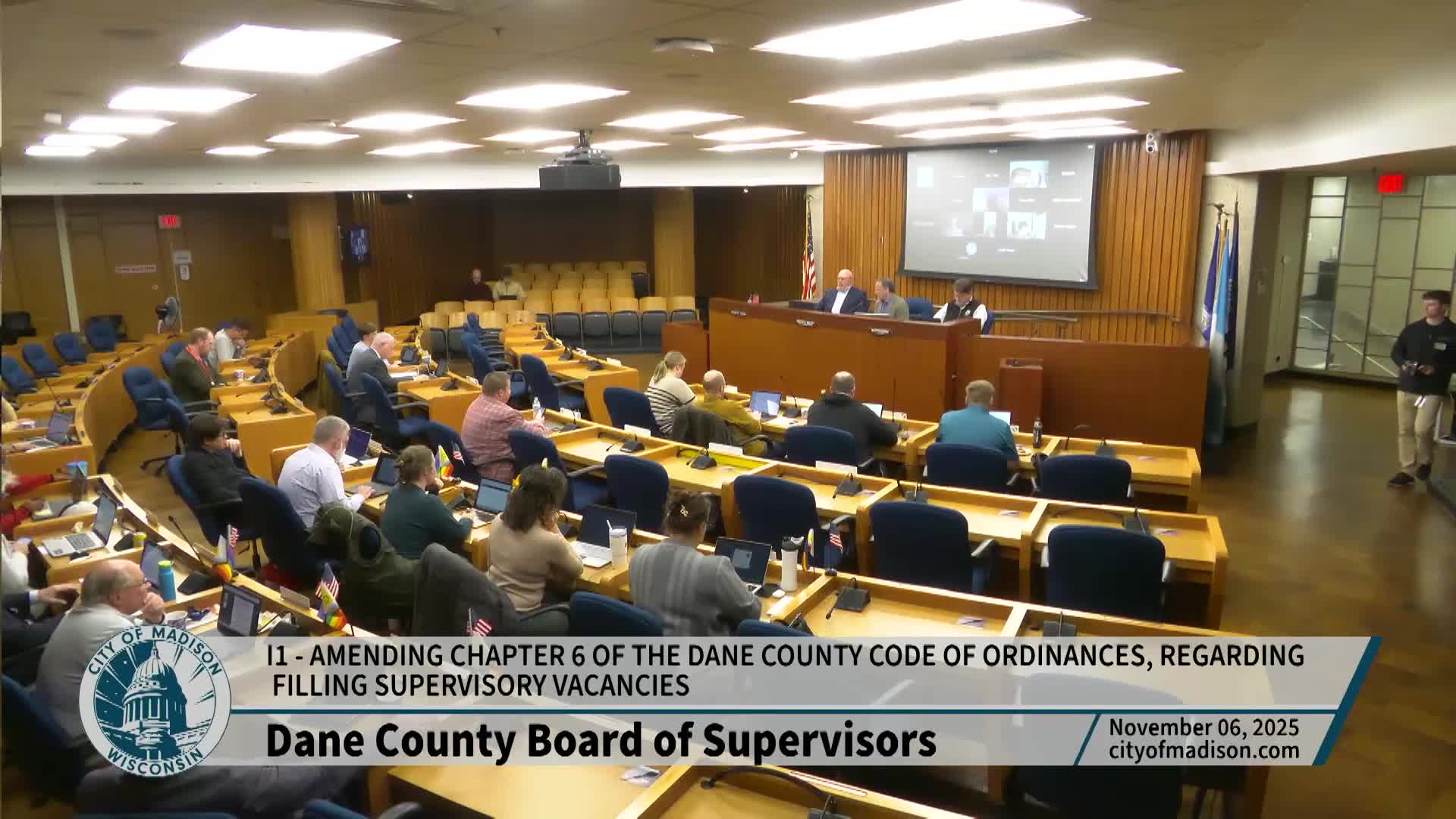Dane County board adopts ordinance to change process for filling supervisory vacancies
Get AI-powered insights, summaries, and transcripts
Subscribe
Summary
The Dane County Board of Supervisors on a roll-call vote adopted an ordinance amendment to Chapter 8 of the county code that changes how supervisory vacancies are filled, aligning special elections with regular election cycles and modifying the appointment process.
The Dane County Board of Supervisors on a roll-call vote adopted an ordinance amendment to Chapter 8 of the county code that changes how supervisory vacancies are filled, aligning special elections with regular election cycles and modifying the appointment process.
Supervisor Henry Friess, who introduced the substitute ordinance (OA8), said the amendment models Dane County’s procedure on state statute and would require special elections to be held at regularly scheduled November and April elections rather than at ad-hoc times. “By modeling this ordinance amendment off of the state statute… we save money,” Friess said, arguing the change produces predictable nomination and primary schedules and shortens the period an appointed supervisor might serve before an election.
Supporters stressed predictability and cost savings. Supervisor Brower said syncing special elections with federal, state and municipal ballots will help voters and prospective candidates know when to run. Supervisor Furman cited the recent cost of a Madison special election, saying the city estimated spending about $50,000 on a single seat election, and said the county should avoid frequent unscheduled elections that draw low turnout.
Opponents said the amendment reduces voters’ control over who represents them. Supervisor Wagon said the measure “expands the county board chair’s authority to make appointments” and would substitute an appointee chosen with chair influence for voters’ choice. Wagon and other critics urged preserving direct special elections even when turnout is likely to be low, arguing that the public’s right to choose outweighs modest cost savings.
Several supervisors explained the appointment mechanics. Supervisor Engelberger and others noted the chair’s recommendation to appoint a replacement would require approval by the full board and that applicants would face public hearings and a nomination process. Proponents said that structure left accountability with the elected body while still enabling quicker filling of vacancies where needed.
After debate, Supervisor Ritt requested a roll call. The clerk recorded votes and the board adopted the ordinance amendment by a roll-call vote announced at the meeting as 28 yes and 5 no. The ordinance changes were described at the meeting as intended to mandate special elections at the next scheduled election dates rather than permitting discretionary off-cycle contests.
The board did not indicate an effective date for the ordinance during the discussion; implementation steps and any changes to administrative procedures were not specified in the remarks recorded at the meeting.
The ordinance and the discussion reflect competing priorities between fiscal and administrative predictability and preserving immediate electoral choice for constituents. The board’s adoption means county staff will incorporate the amended vacancy procedures into county practice and notice requirements going forward.
